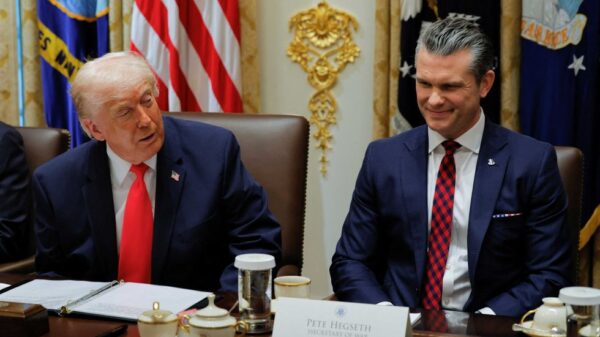UPDATE: New research from Yale University and the National Bureau of Economic Research confirms that Elon Musk’s political activities have cost Tesla over 1 million sales in the United States. This urgent finding has significant implications for the automaker’s future as it grapples with declining interest amidst fierce competition.
The study, released earlier this week, identifies a direct correlation between Musk’s shift to right-wing politics and a marked decrease in Tesla sales, especially in predominantly Democratic counties. Researchers tracked vehicle registration data from 2018 to 2025, revealing that while overall electric vehicle (EV) sales have surged, Tesla has seen a sharp drop in growth since October 2022, the month Musk purchased Twitter and began publicly aligning himself with conservative ideologies.
The report highlights a phenomenon dubbed the “Musk partisan effect.” Before October 2022, Tesla registrations were on a steady upward trend. However, post-acquisition of Twitter, registrations in liberal areas plummeted, while those in conservative regions continued to see modest increases. Researchers attribute this downturn directly to Musk’s political activities, suggesting they have alienated a significant portion of Tesla’s customer base.
In addition to Musk’s political affiliations, the study does acknowledge other factors that may have contributed to the sales decline, such as a slowdown in new model releases, increased competition from traditional automakers entering the EV market, and a shift in focus from attracting new customers to satisfying existing demand. Nevertheless, the researchers firmly conclude that Musk’s actions have substantially impacted the company’s growth trajectory.
Tesla’s sales trends have not been consistently negative; there was a surprising spike in registrations last October, likely due to the expiration of federal EV tax credits. However, analysts warn that the ongoing challenges, particularly those linked to Musk’s political stance, could hinder the company’s recovery efforts.
As Tesla faces these mounting challenges, the implications of this new study are profound. With over 1 million potential sales lost, Musk’s political involvement may not only be reshaping his brand but could also influence the broader EV market moving forward.
In response to inquiries regarding the research, xAI, a company associated with Musk, dismissed the findings, labeling them as “Legacy Media Lies.” Meanwhile, attempts to reach Tesla for comment have been unsuccessful due to the company’s dissolved public relations department.
As Tesla navigates these turbulent waters, the industry watches closely. Investors and consumers alike are eager to see how Musk’s political activities will continue to affect the brand and its future in the ever-evolving landscape of electric vehicles. This study serves as a critical reminder of the complex interplay between corporate leadership, public perception, and market performance.






































































